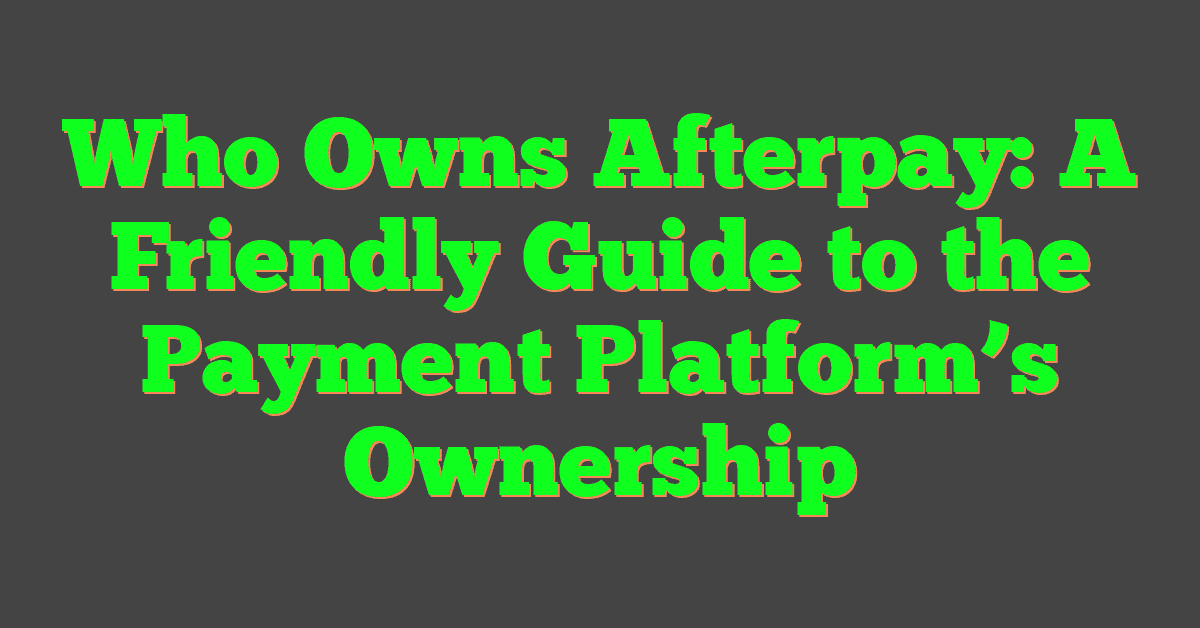Key Takeaways
- Understanding who owns the house next door can reveal potential business opportunities, help build neighborhood connections, and uncover property investment prospects.
- Legal and ethical research methods, such as using public records, property deeds, and online tools, are crucial when investigating property ownership.
- Platforms like Zillow, government offices, or paid apps can streamline the process of accessing ownership details efficiently.
- Challenges such as privacy barriers and outdated records can be overcome by cross-checking multiple sources and maintaining professionalism.
- Respecting privacy, fostering open communication, and engaging with neighbors positively can lead to stronger community relationships and potential collaboration opportunities.
Ever found yourself wondering who owns the house next door? Maybe you’re curious about your neighbors, or perhaps the property looks vacant and you’re thinking about its story. Whatever the reason, it’s natural to want to know more about the homes around you.
Understanding Property Ownership
Owning property is at the core of many business opportunities and investment ideas. Understanding who owns the property next door can unlock potential for new ventures or reveal useful insights into the local market.
Why Knowing Who Owns The House Next Door Matters
Identifying property owners opens doors to potential business opportunities. If the property is vacant, I might negotiate a deal to rent or buy it as a rental asset, flip it for resale, or create a small co-working space. For example, a neighbor might own multiple properties and be looking to sell one—this could be my chance to expand my portfolio.
Understanding ownership also builds stronger neighborhood connections. Let’s say the house is currently rented out. Instead of dealing with the tenants (who may move), I’d contact the actual owner for permission if I’ve got plans like a shared driveway deal or something like hosting events nearby. Information like this is even more valuable if I’m planning ventures tied closely to the community, such as local events, marketing services, or landscaping side hustles.
Legal Rights And Privacy Considerations
When digging into property ownership, respecting laws and privacy becomes critical. Accessing publicly available records, like those from the county assessor or property appraiser, is entirely legal. I’ve used these tools before for research, but trespassing or prying into someone’s private details isn’t just wrong—it’s bad for business.
Most property searches are straightforward, thanks to online databases. For instance, I’ve tried websites like Zillow for listings or county government sites for official records. However, I avoid unethical shortcuts like using false pretenses to gather the info. My entrepreneurial mindset thrives on trust and professionalism, so handling these queries the right way helps me maintain good relationships and avoid legal hassles.
Tools And Resources For Finding Property Owners
As an entrepreneur always hunting for my next side hustle, knowing who owns the house next door can open doors to potential deals. Having access to the right tools to find this information fast and legally is key to staying competitive in this game.
Public Records And Property Deeds
Public records and property deeds are some of the best tools for identifying property owners. County recorders or assessor’s offices keep detailed data on every property, making it available to the public either online or in person. For example, I’ve accessed property ownership details, tax liens, and transfer history simply by pulling deeds through my local recorder’s website.
Digging through deeds might look old-school, but it’s worth it when flipping properties or securing rental investments. I’ve found motivation in the challenge of piecing together ownership trails—it’s like prepping for a game with high stakes.
Online Property Search Websites
Online property search websites streamline the process of finding owners. Platforms like Zillow, Realtor.com, or even paid ones like PropStream provide ownership data alongside home details. When I researched a vacant lot last month, an advanced tool helped me get the property owner’s name and contact info in minutes.
Investing in premium search apps like Skip Genie or BeenVerified can take things further. While these come at a cost, they’ve saved me countless hours. Most side hustlers I know agree relationships with data-rich tools are critical for growing wealth faster.
Local Government Offices
Local government offices are underutilized resources. Visiting or calling your township’s clerk or assessor’s office typically yields accurate property details. One time, I discovered hidden insights about zoning regulations by chatting with a zoning officer during my inquiry. Moments like these can change the way you approach deals.
For side hustlers with budget limitations, using free or low-cost government services beats wasting time on scattered information online. Plus, officials often provide guidance about navigating databases, which adds value to the research process.
Steps To Identify The House Owner
When diving into property research, knowing who owns the house next door can open doors for potential deals or new business ideas. I’ve used these strategies in my own ventures to turn simple curiosity into opportunities.
Checking County Tax Assessor Records
County tax assessor records list property ownership information. I usually start by visiting the assessor’s website for the county where the property is located. These records typically include the owner’s name, mailing address, and the property’s assessed value. If I’m working on a budget, this is my preferred method since it’s free and reliable. By understanding the property taxes and ownership details, I can figure out whether the owner might be open to selling. For example, delinquent tax payments can signal motivated sellers.
Consulting Neighborhood Associations
Some properties tie into neighborhood associations, offering another way to confirm ownership. I’ve reached out to homeowner associations (HOAs) in the past to inquire about homes in their communities. Many associations maintain records of property owners for fee-related purposes or community updates. While it’s not guaranteed they’ll share information, being professional and mentioning my interest in property investing has worked for me. It’s a good strategy to build local connections, which often pay off in the long run.
Approaching The Home Directly (With Care)
When I’ve run out of leads, asking directly can yield surprising results, though I always tread carefully. I knock on the house’s door or leave a polite note introducing myself if no one is home. If the owner resides in the house, this approach can kickstart a productive conversation. Respecting privacy is key—I never insist or pry into personal details. For absentee landlords, checking mailbox labels or speaking to neighbors nearby has sometimes pointed me in the right direction.
Common Challenges And How To Overcome Them
Figuring out who owns the house next to you can open doors to potential investments or collaborations. However, some hurdles can make the process frustrating if you’re not prepared. I’ve dealt with these challenges in my own hustle to build multiple income streams and found ways to tackle them effectively.
Privacy Barriers
Property owners value their privacy, and navigating this can be tricky. While public records are available, some owners take extra steps to protect their information. For example, they might use LLCs or trusts to shield their identity, making it harder to track them down directly. I’ve encountered this when trying to research vacant houses that seem like perfect opportunities.
To overcome this, I cross-check multiple sources. If tax records or deeds show an LLC, I look up the business registration on state websites, which usually lists the owners’ names. Networking locally helps too. Realtors, neighborhood associations, or even a quick introduction to nearby neighbors can provide insights without overstepping boundaries. These approaches respect privacy while still getting the info I need to move forward.
Outdated Or Inaccurate Records
Sometimes, public records don’t match reality. I’ve seen cases where ownership changes due to recent sales, but the county assessor’s data hasn’t updated. This creates confusion, especially if I’m targeting a vacant property for potential flips or rentals.
To tackle this, I rely on multiple resources. Online property platforms like Zillow often update faster, and I verify details by checking multiple sites. I also call or visit the local county records office for the most recent updates—they’re usually eager to help if you’re polite and specific about what you’re searching for. When pursuing side hustles, ensuring accurate data saves time and prevents wasting energy on dead ends.
Tips For Maintaining Good Neighbor Relations
Building strong relationships with neighbors isn’t just good for peace of mind—it can also open up opportunities for collaboration, joint ventures, or even future business deals. Whether I’m scouting potential investment properties or simply expanding my network, keeping things positive with neighbors has paid off in more ways than one.
Respecting Privacy
I always respect privacy, especially when digging into property details for side hustle ideas or investments. Instead of pushing for personal information, I stick to public records and resources that are easy to access legally. When approaching a neighbor directly, I never show up uninvited or at inconvenient times. A friendly wave and a quick introduction go a long way without stepping over boundaries.
For example, when I needed information about a vacant property, I reached out by leaving a polite note with my contact details. It felt professional and ensured they didn’t feel pressured. Small efforts like this maintain trust and leave doors open for future connections.
Fostering Open Communication
Clear communication helps avoid misunderstandings, making it easier to pitch ideas or ask for property details. I regularly check in with my neighbors during community events or even casual meetups to keep the lines of communication open. Showing genuine interest in their experiences or updates builds rapport over time.
When I started a property-flipping side hustle, one neighbor even tipped me off about homes in the area that might go up for sale soon. This kind of information stemmed from their trust in me. To keep things fair, I always offer value in return, whether it’s advice on home improvements or a simple thank-you gesture. Open discussions create a win-win scenario that benefits everyone.
Conclusion
Learning about the house next door can open up a world of possibilities, whether you’re curious about its history, exploring investment opportunities, or simply building stronger ties with your community. With the right tools and a respectful approach, uncovering property details becomes both manageable and rewarding.
I’ve found that combining research with genuine neighborly connections often leads to the best outcomes. By staying professional, respecting privacy, and making use of reliable resources, you can gather the information you need while fostering trust and collaboration. It’s amazing what doors can open when you approach things with care and curiosity!




